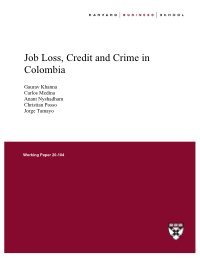By Randi Hjalmarsson, Stephen Machin, Paolo Pinotti
The economics of crime has emerged as a critical field over the past 30 years, with economists increasingly exploring the causes and consequences of criminal behavior. This paper surveys key contributions and developments from labor economists, who investigate the (often two-way) intersection of crime with labor market factors, such as education, wages, and unemployment. The paper underscores the importance of understanding criminal decision-making in economic analysis through the lens of opportunity costs and labor market conditions. Methodological advancements, particularly those addressing causation, have propelled the field forward, enabling more accurate conclusions to be drawn for policy recommendations. The paper also explores the role of social policies and international contexts, emphasizing the need for evidence-based reforms to effectively reduce crime. This comprehensive review underscores the transformative impact of economics on crime research and its potential to influence real-world policies.
IZA DP No. 17423 Bonn: IZA – Institute of Labor Economics , 2024. 66p.




